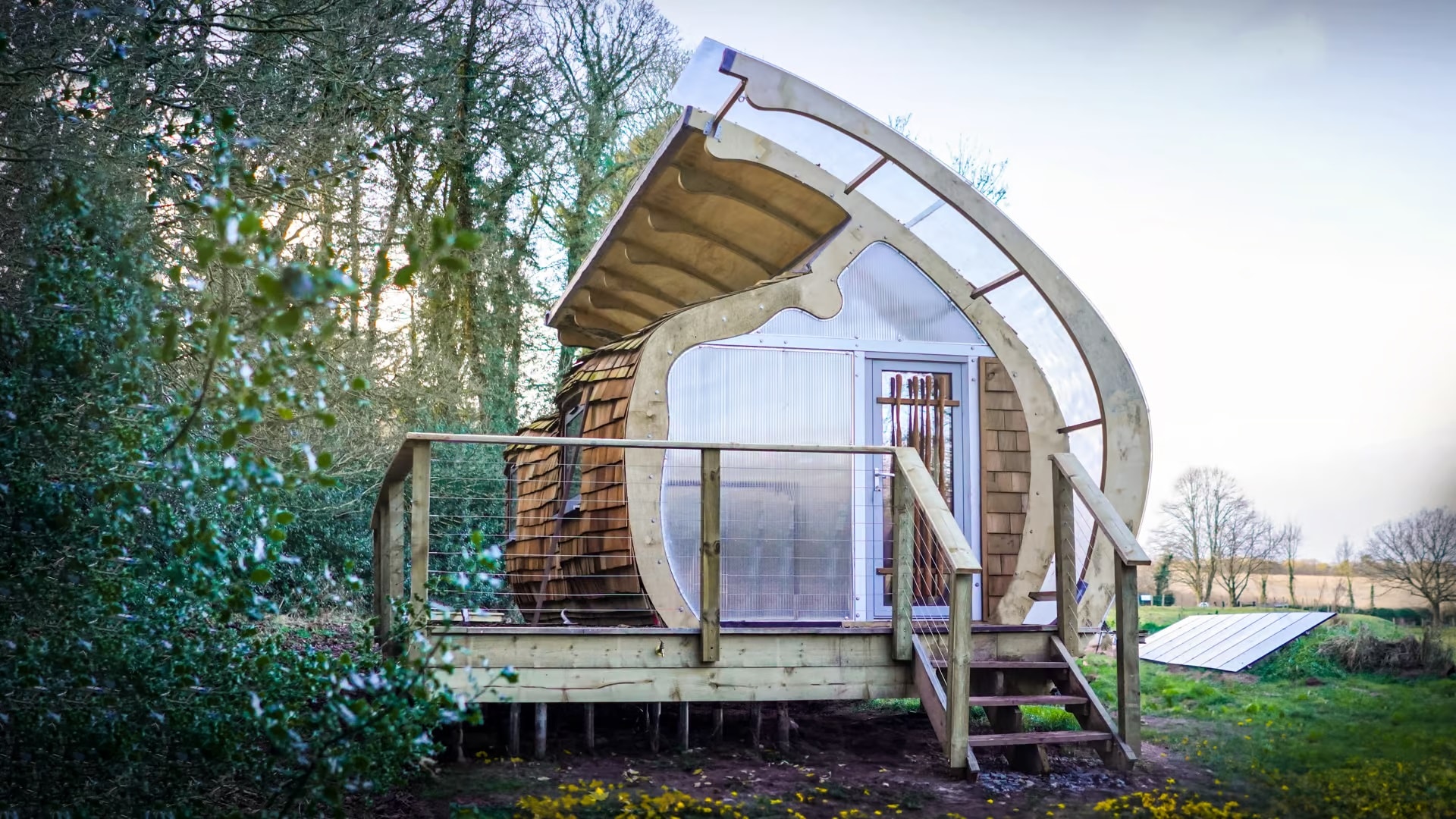By Gary Fleisher
Modular and manufactured construction continues to emerge as the leaders of innovation and sustainability. This process, where buildings are pre-fabricated off-site and then transported and assembled at the final location, is not just a trend; it’s a paradigm shift in how we think about constructing spaces. Let’s take a look into the multifaceted benefits of modular construction, highlighting its significant impact on reducing job site waste, cutting transportation costs, enhancing energy efficiency, and bolstering overall sustainability.
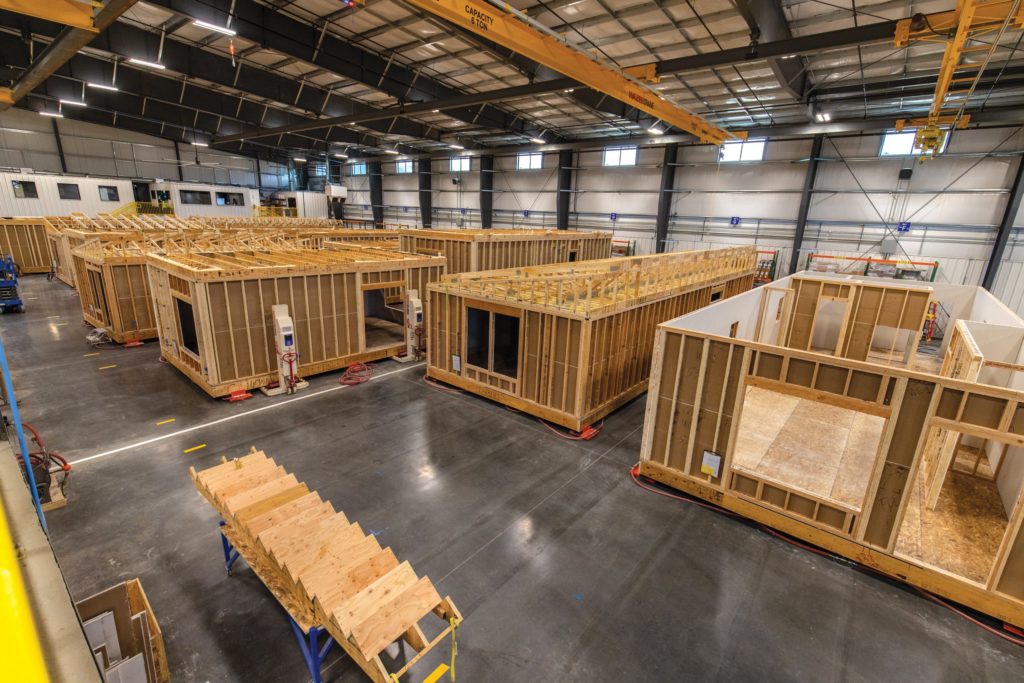
All photos – Fading West
Reducing Jobsite Waste: A Sustainable Approach
In the traditional construction framework, building sites often resemble chaotic jumbles of excess materials, damaged components, and miscellaneous debris. This not only results in environmental degradation but also contributes to a considerable waste of resources. Modular construction, with its controlled factory environment, radically alters this scenario. Here, precision reigns supreme; materials are measured, cut, and used with meticulous care, drastically reducing leftovers. What’s more, any surplus doesn’t end up in landfills; instead, it finds new life in other projects or is recycled. This methodical approach not only conserves resources but also slashes the costs related to waste management, making it a win-win for both the environment and the economy.
Lowering Transportation Costs: Efficient and Eco-friendly
Consider the traditional construction process: a constant influx of raw materials to the site, the removal of waste, and the transportation of heavy machinery. Modular construction streamlines this into a more efficient and eco-friendly process. The modules, comprising significant parts of the building, are transported as complete units from factory to site. This reduction in transportation frequency translates into lower fuel consumption, reduced emissions, and, importantly, diminished transportation costs. It’s a strategic move that benefits the planet and the pocket.
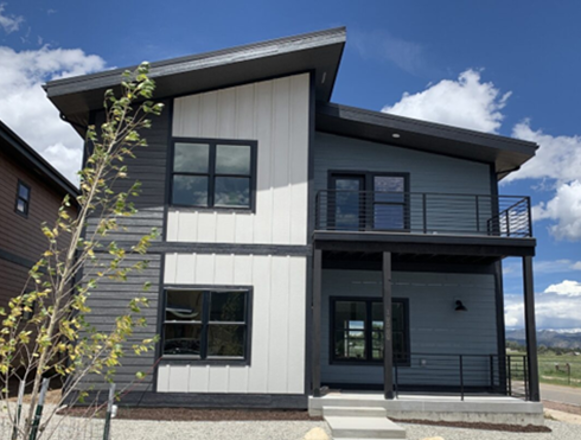
Enhancing Energy Efficiency: Building a Greener Tomorrow
In the realm of energy efficiency, modular buildings often outshine their traditional counterparts. The factory setting allows for a construction process characterized by tight joints and superior air filtration, leading to minimal air leakage and, subsequently, lower energy costs. Moreover, integrating high-grade insulation and energy-efficient windows is far more feasible in a factory than on a conventional construction site. These elements collectively decrease the carbon footprint of the building, making modular construction a champion of energy efficiency.
Promoting Sustainability: The Green Core of Modular Construction
The inherent green nature of modular construction is multifaceted. Firstly, the streamlined construction process means less energy consumption during the creation of building components. Secondly, the reduced time spent on-site diminishes the environmental impact on the building site itself.
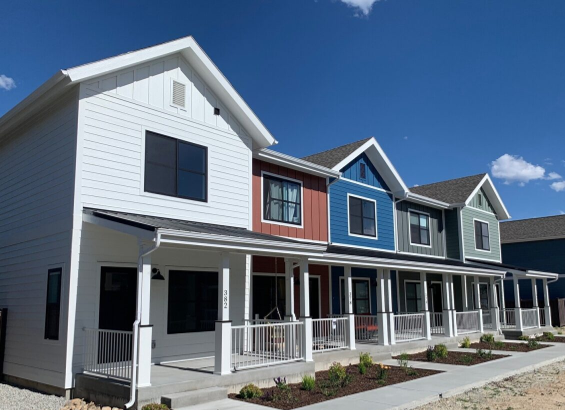
Flexibility and Adaptability: Meeting Evolving Needs
One of the standout features of modular buildings is their innate flexibility. These structures can be easily modified to suit varying purposes, an attribute that lends them a prolonged lifespan. Instead of demolishing and rebuilding, some modular buildings, such as workforce camps and homeless shelters can be reconfigured or relocated, making them an ideal solution for ever-changing space requirements. This adaptability not only conserves resources but also ensures that the buildings can evolve in tandem with our changing needs.
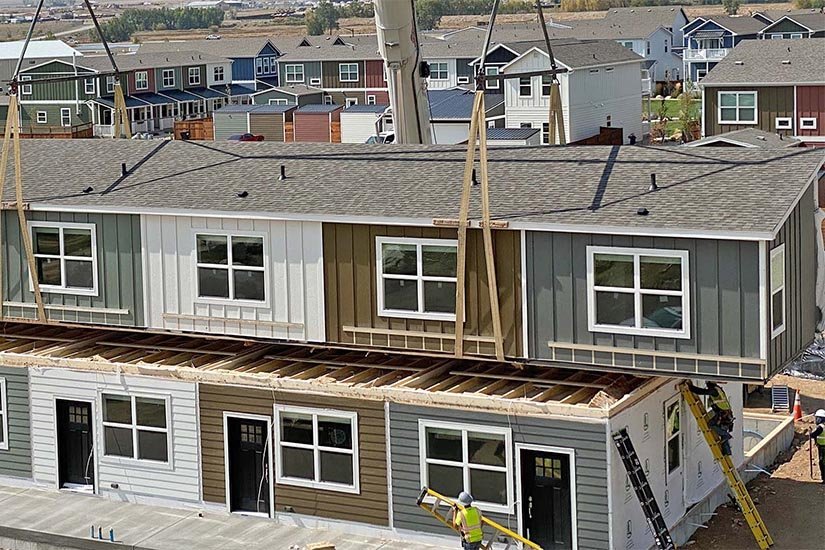
Speed of Construction: Time Efficiency at Its Best
Time is a precious commodity, and modular construction respects this. Traditional building methods often involve prolonged construction timelines, subject to the whims of weather and unforeseen delays. In stark contrast, modular construction operates on a significantly accelerated timeline. The key lies in the simultaneous progression of site work and module fabrication in the factory. This parallel process results in rapid completion, slashing the time to occupancy compared to traditional methods. It’s not just about speed; this efficiency translates into reduced labor costs and minimal disruption to the surrounding community, making it a highly effective construction method.
Improved Safety: A Safer Construction Environment
Construction sites are often synonymous with potential hazards. Modular construction, with its factory-centric approach, fundamentally changes this dynamic. The controlled environment of a factory minimizes the risks typically associated with construction sites. Workers operate under stricter safety protocols, and factors like weather and terrain play a negligible role in their daily operations. This leads to a dramatic decrease in construction-related accidents and injuries, enhancing worker safety and reducing the likelihood of construction delays due to safety issues.
Quality Control: Superior Standards in Manufacturing
In modular construction, quality control is paramount. The factory setting enables a level of precision and standardization that is challenging to achieve on traditional construction sites. With advanced technologies and stringent quality checks, each component of a modular building is crafted to meet exact specifications. This ensures a high-quality end product, with consistent standards across all modules. It’s a shift towards a more reliable construction process, where quality is not left to chance.
The Future of Building is Modular
Modular construction stands at the forefront of a construction revolution, offering a sustainable, efficient, and practical alternative to traditional building methods. Its ability to reduce waste, cut transportation costs, boost energy efficiency, and promote overall sustainability positions it perfectly in line with the contemporary push towards greener and more efficient construction practices. The additional benefits of flexibility, speed, improved safety, and superior quality control only add to its appeal. As the world continues to seek out sustainable solutions across all sectors, modular construction emerges not just as a viable option, but as a leading choice for a future where efficiency, sustainability, and quality are paramount.

In summary, the modular and manufactured construction approach is more than just a trend; it’s a transformative process that redefines our understanding of building. It embraces the challenges of the modern world, offering solutions that are not only environmentally responsible but also economically viable and socially beneficial. As we navigate the complexities of urbanization, climate change, and resource management, modular construction provides a blueprint for a sustainable, efficient, and adaptable future in building. It’s a method that doesn’t just construct buildings; it builds a better world.
The journey of modular construction is an ongoing one, with continuous advancements and innovations. As technology evolves, so too will the capabilities and applications of modular construction, promising even greater efficiency, sustainability, and adaptability in the years to come. It’s an exciting time for the construction industry, and modular construction is at the heart of this evolution, leading the way towards a more sustainable, efficient, and forward-thinking approach to building.
In embracing modular and manufactured construction, we’re not just choosing a building method; we’re choosing a sustainable future. For developers, architects, builders, and consumers alike, it represents a smart investment into a greener, more efficient, and more adaptable world. As we continue to build and grow, modular construction stands as a testament to our ability to innovate, adapt, and overcome the challenges of our time. It’s not just the future of construction; it’s the future of our planet.
.
Gary Fleisher is a renowned blogger and commentator on construction and housing trends, known for his insightful analysis of the industry.

